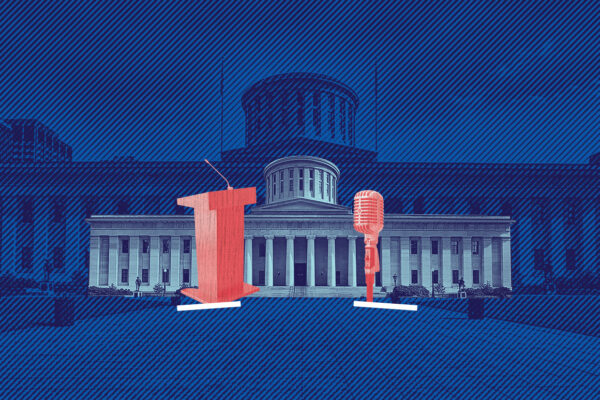Below is the official testimony originally submitted to the Senate Education Committee on November 19, 2024.
To Chairman Brenner, Vice Chair O’Brien, Ranking Member Ingram, and members of the Senate Education Committee, thank you for this opportunity to provide opponent testimony on Senate Bill 293.
The ACLU of Ohio’s concerns with SB 293 are macro and micro in nature. That is, we generally oppose religious release time programs in our public schools. We also have various concerns with this bill that compel us to specifically oppose SB 293.
First, the specific concerns. As this committee has heard and will continue to hear, parents, students, and community members have numerous apprehensions about the practical realities and implications of allowing students off campus for religious release time programs. It is important to note these are all current problems with existing religious release time programs, before the passage of SB 293 which would kick the door wide open across the state. A non-exhaustive list of these concerns are as follows:
In communities and schools where religious release time is popular and well- attended, other students are left behind at school while their classmates attend sectarian instruction. In some schools, this quite predictably results in students, staff, and administrators having to navigate a school day where some students are present, some are not, but the school is still tasked with ensuring all are learning at the same rate, in the same general timeframe.
In other words, parents send their children to school, expecting a full day of education, that is then interrupted, delayed, or abandoned because others leave the school. Those parents and students are basically penalized and inconvenienced because the school accommodates and shifts lesson plans, times, and deadlines to the detriment of those who remain in school, ready and eager to learn. Teachers are also affected, having to pivot to accommodate two sets of students, those who are present in class for instruction time and those who leave, missing that time.
Current Ohio law forbids schools from releasing students if it means they will miss a “core curriculum” class. This has resulted in release time students missing classes such as fine arts, music, and physical education. I can assure you, for many students, their futures are much more dependent on what they learn, practice, and absorb in those apparently second tier, less important classes instead of math, science, or other classes deemed core curricula.
Parents and students are also worried about safety issues. Are the sponsoring entities of religious release time programs properly vetting their own staff and instructors? If so, how? If not, why not? To volunteer for a local school, a person is expected and required to jump through sometimes multiple hoops. For religious release time, none. At least as far as the General Assembly is concerned.
What about students from a family with divorced, separated, or split up parents when those parents disagree on whether their child should have permission to attend religious release time? Current law and SB 203 are silent on those scenarios.
How prepared are these sponsoring entities for students with learning disabilities, individual education plans, or assorted physical health and behavioral issues? Are these entities sensitive to things such as food allergies and other food safety issues? The current state of things, pre-SB 293, indicates these problems will continue and increase.
In addition, across the state, many students who do not attend religious release time are subjected to bullying, proselytization, and harassment for not attending and/or for their own beliefs by students who do attend. While the First Amendment generally protects much student speech in public schools as classmates interact with each other, it is clear bullying and harassment problems exist that are not being adequately addressed. Again, passage of SB 293 will bring more of the same.
Even if legislation could somehow cure or at least minimize this assortment of demonstrated issues, SB 293 and religious release time still suffers from a larger, fundamental problem. That is, under current law and SB 293, students may be released and excused from school for religious instruction – and only religious instruction. The Establishment Clause of the First Amendment requires government to be neutral regarding religious beliefs and worship. What about the student who wishes to be formally excused from class, during the school day, for swim lessons? Or to volunteer at a food pantry? Or to participate in a political protest across the street or across town? They are out of luck as Ohio law only allows for excused absences in this general context for one and only one purpose – religion. The ACLU of Ohio believes this is contrary to that neutrality required by the First Amendment.
For these reasons and more, the ACLU of Ohio encourages this committee’s rejection of Senate Bill 293 in favor of current law which allows local school districts to decide themselves whether or not to accommodate religious release time programs.



